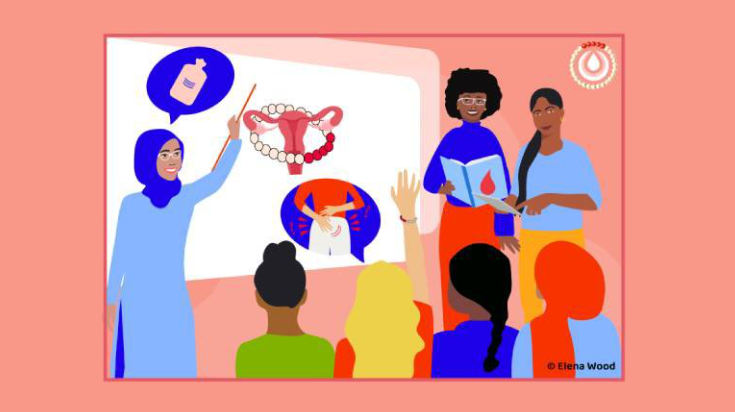Addressing Menstrual Equity: Political Promises and Legislative Strides (GS Paper 2, Polity)

Introduction:
- In the lead-up to the 2024 general election, the election manifesto of Tamil Nadu's ruling political party, the Dravida Munnetra Kazhagam (DMK), has brought to the forefront the issue of menstrual leave, signaling a pivotal moment in the fight for gender equality.
- This promise, amidst a backdrop of legislative efforts and societal debates, underscores the pressing need to address deeply ingrained gender biases and discrimination against women.
- As political parties and lawmakers grapple with this issue, the quest for menstrual equity takes center stage in the quest for a more inclusive and gender-sensitive society.
Legislative Efforts and Advocacy:
- The discourse surrounding menstrual leave gained traction with the introduction of Private Member Bills by Members of Parliament (MPs) such as S. Jothimani, Ninong Ering, Shashi Tharoor, and Hibi Eden, advocating for the recognition of menstrual rights and entitlements for women.
- These Bills sought to grant women the right to menstrual hygiene and paid leave, challenging existing norms and pushing for legislative reforms to promote gender equity in the workplace and beyond.
Challenges and Resistance:
- Despite these legislative endeavors, the journey towards menstrual equity has been fraught with challenges and resistance.
- The Supreme Court's reluctance to entertain a public interest litigation on menstrual leave and the central government's refusal to enact relevant policies highlight the uphill battle faced by advocates of menstrual rights.
- Moreover, the absence of explicit mentions of menstrual leave in the election manifestos of major political parties underscores the need for sustained advocacy and public awareness campaigns to keep the issue on the agenda.
Progressive Initiatives and International Comparisons:
- While India grapples with the issue of menstrual equity, progressive states like Kerala have led the way with pioneering initiatives such as granting period leave for students as early as 1912 and introducing menstrual and maternity leave for students above the age of 18 in 2023.
- Moreover, several Asian countries, including Japan, Indonesia, and South Korea, have enacted legislation to address menstrual stigma and provide paid leave for menstruating women, setting a precedent for global action on menstrual equity.
The Path Forward:
- As India navigates the complex terrain of menstrual equity, it is imperative to recognize the multifaceted nature of gender inequalities and the need for policy solutions that address the differentiated experiences of women.
- By promoting greater gender sensitivity and challenging societal taboos surrounding menstruation, policymakers and advocates can pave the way for a more inclusive and equitable society.
- Moreover, the recognition of menstrual rights by political parties and lawmakers is crucial in advancing women's rights and fostering gender equality in India's socio-political landscape.
Conclusion:
- The issue of menstrual equity transcends mere policy debates; it embodies a broader struggle for gender justice and societal transformation.
- As India grapples with the complexities of menstrual rights legislation, it is imperative for policymakers, lawmakers, and civil society to join forces in advocating for meaningful reforms that uphold the dignity and rights of women.
- By centering the voices and experiences of menstruating individuals, India can chart a path towards a more inclusive, equitable, and gender-sensitive future.


